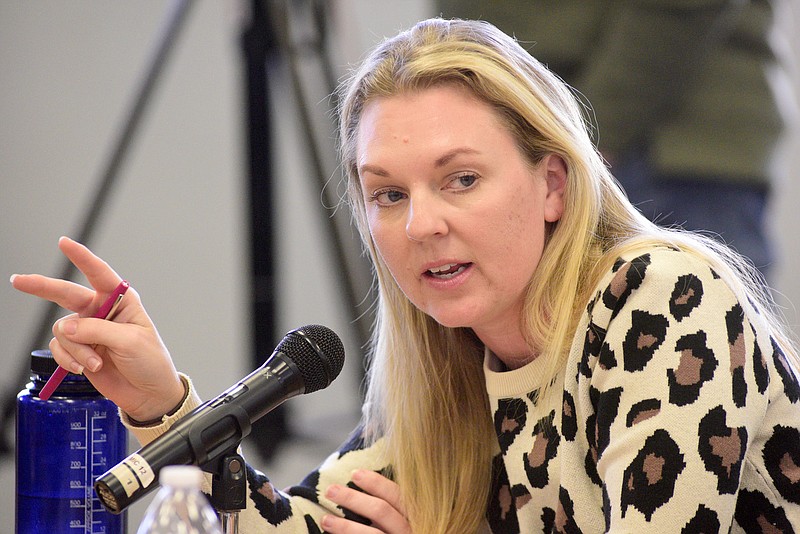We're not ready to fully endorse a bill state Sen. Todd Gardenhire, R-Chattanooga, is introducing that would equalize the pay and benefits of Tennessee school board members with their county commissioners, but we'd be behind our local school board members receiving a substantial increase in compensation.
In Hamilton County, members of the school board receive slightly less than half the amount of county commissioners - $12,365 as opposed to $25,394.
Gardenhire points out that the district education budget is more than half of the county's total and conjectured that school board members work as many or more hours in their elected positions as do county commission members.
"Serving on the board of a school district is a huge responsibility and time commitment that comes with making a variety of complex and weighty decisions," he said in a news release. "These members are expected to attend meetings, serve on committees, meet with the public and maintain a wide breadth of knowledge on the issues they face as a board."
If school board members are doing their job correctly, when they're not at a school board meeting or board committee meetings, they're studying the issues that might come before them, reading background materials, attending events in their district schools, remaining in touch with those schools and making themselves available at community meetings.
And they're often doing those things in addition to holding down a traditional, 40-hour-a-week job.
We've been to some of those meetings where school board members appear, and they often are asked to answer questions that have nothing to do with their position, questions to which they cannot possibly give a definitive answer and questions that ask them to give a more political answer than is necessary.
So we're in sympathy with Gardenhire's sentiment.
But county commissioners, likewise, are asked be briefed on the issues that come before them (and on far more and some more complex issues than education), are expected to attend events throughout their district (not just those involving schools), and also attend their own committee and community meetings. They also attend regular meetings weekly rather than monthly.
So we'd be supportive for local school board members to earn 70% to 80% of their county commissioners' pay, which would put them receiving somewhere between $17,776 and $20,315.
Gardenhire said current state law requires that school board members be paid at least $3 per meeting, with their compensation set by the local governing body (a county commission, in most cases).
However, many rural school boards across the state have very few schools to oversee and fewer complex problems than those in larger counties like Hamilton.
All that said, we can't imagine someone running for school board (or county commission, for that matter) for the money. The current school board salary is less than a poverty wage for a single person, and the county commission salary is less than a poverty wage for a family of four that includes two children.
The more likely reason for someone running for one of the two positions is an interest in serving the community in a particular area like education, a desire to give back to the community or as a potential stepping stone for another position. (Currently, for instance, three Hamilton County commissioners were once school board members.)
Plus, no school board member has run for their position with blinders on. They knew the salary, minuscule as it is, when they ran.
A factor weighing on Gardenhire's side for the equalized salaries, though, is that school board races across the state - with a state law passed during November's special session of the state legislature - now can be run on a partisan basis. And in Hamilton County, the Republican Party Executive Committee already has said the GOP will go along. Democrats, on the Hamilton County Democratic Party website, have posted "Why do Democrats have to call for partisan school board primaries?," then listed all the reasons why they should.
A potential school board member, then, not only will have to raise money for an August general election but also for a May primary. That means more time meeting with party officials, more time raising money and more time campaigning.
If they're going to be asked to put that much more into a run for office, Gardenhire might say, they should be paid more.
The Chattanooga state senator said he doesn't yet have a House sponsor for his bill but doesn't see a problem getting one.
Nevertheless, we'll root not for the equalization of county commission and school board salaries but a hard look in Hamilton County - and in other places where education boards are undervalued - at how much school board salaries might be increased to compensate for the hard work their members do.
